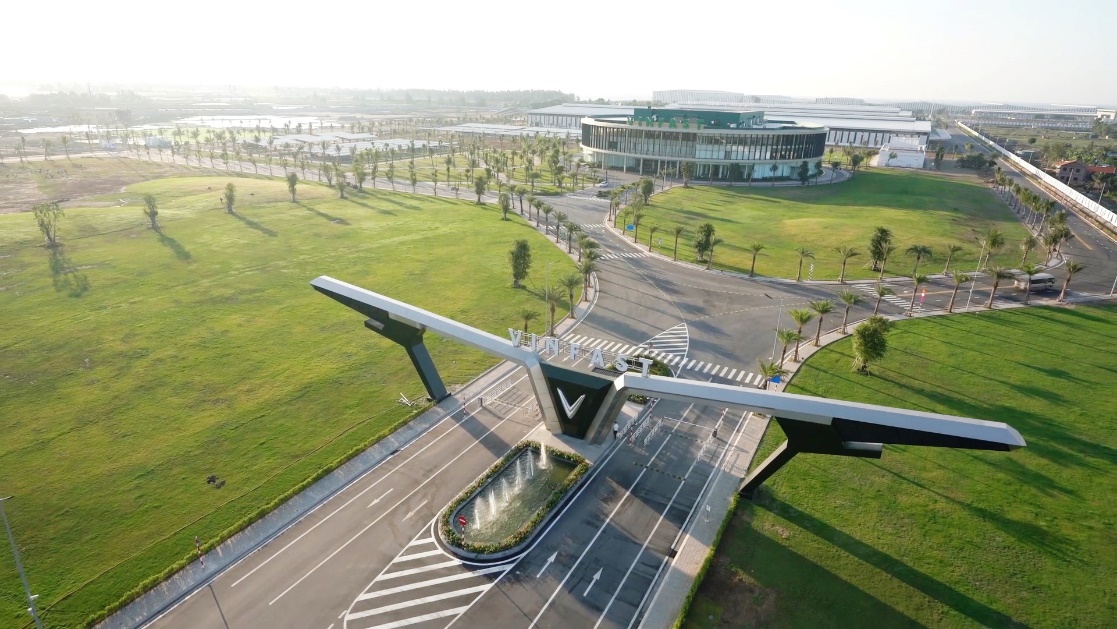Haiphong Harbor, once a symbol of a war long past, has serves as a tangible emblem of Vietnam’s rapid economic ascent. Yet, Haiphong signifies something even more profound – it’s the birthplace of VinFast, Vietnam’s first homegrown automaker with global ambitions.
A subsidiary of Vingroup, Vietnam’s largest conglomerate, VinFast has not only emerged as the country’s first carmaker but also established itself as a pioneer in the EV revolution.
VinFast’s Rapid Ascent
VinFast owes its existence to the vision and ambition of Vietnam’s richest man and Vingroup’s founder, Pham Nhat Vuong. Known for his decisiveness, Vuong established the car company in 2017.
Following the launch of 3 gasoline models, VinFast made a bold move: it was going all electric. The company delivered its first EVs to Vietnamese customers in December 2021, a remarkable feat achieved in less than five years.
The motivation behind VinFast’s lightning pace lies in Vuong’s laser focus and strategic partnerships. Vingroup, with its vast and multi-faceted resources, leveraged its expertise in construction and real estate development to establish a nationwide network of charging stations. To accelerate development, VinFast partnered with some of the automotive world’s heavyweights, including BMW and Pininfarina.
But why electric? Vuong once said that a large, successful enterprise such as Vingroup has a duty to contribute to its homeland by way of building a quality brand capable of competing with the world’s best.
“VinFast is not only a business project, but a devotion project,” he declared in a recent interview with Bloomberg.
Journey To The West
Initial domestic success proved to be a mere stepping stone for VinFast.
In 2022, the first VinFast VF 8s arrived on North American shores. The following year, VinFast debuted on NASDAQ, becoming a publicly listed company. VinFast’s bold foray into the U.S. market “sends a message about Vietnam’s rising profile in the global economy,” writes one expert.
Setting Sights on the Middle East
VinFast isn’t solely focused on North America. The company is also expanding into Asia, Africa, and the Middle East. The latter region, with its growing environmental awareness and ambitions to diversify from fossil fuels, presents a particularly promising market for electric vehicles.
This is evident in the ambitious targets set by countries like the UAE, which aims to have 50% of its vehicles electric by 2050. Additionally, Saudi Arabia’s investments in one American EV company further highlight the region’s commitment to electric mobility.
The Middle East’s young, affluent demographic also presents a lucrative market for VinFast’s electric vehicles. Mordor Intelligence projects the region’s EV market to experience a Compound Annual Growth Rate (CAGR) of 23.20% between 2024 and 2029, reaching USD 9.42 billion.
VinFast has already begun making its moves in the region. In Oman, the company has partnered with Bahwan Automobiles Trading to distribute its electric vehicles. In the UAE, it has signed an exclusive dealership agreement with Al Tayer Motors. And more recently, VinFast has established a regional headquarters in Dubai.
VinFast’s foray into the Middle East signifies a new chapter in the brand’s global expansion and the region’s shift toward sustainable transportation. Only time will tell if VinFast’s Middle Eastern venture will replicate its domestic success, but the early signs are promising.


